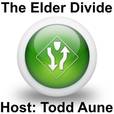
Summary: Health Trackers come in all types and sizes. Some you have never heard of. Many new ones were shown at the International CES 2015 Consumer and Electronic Show, some will make it to market and some might not. Others are just newer versions of old products. These devices are getting more and more sophisticated as time goes on. Soon you will be able to know almost as much at home as your doctors office visits learn about your health. There are many new classes of devices from Sleep, Diabetes, Heart, Calories and more. These don't just have to be for fitness and exercise. If you are 50+ and want to know more about your health without the expense and time at the doctor, maybe one of these is in your future. These mostly work with apps on your phone. Some work with Apple iOS and others Android or both. Types of trackers: - Sleep - resting heart rate, respiration, sleep cycles, stages and time, stress levels, movements, snoring, <a href="https://en.wikipedia.org/wiki/Rapid_eye_movement_sleep" target="_blank" rel="nofollow">(REM)Rapid eye movement</a> cycles, and other... - Diabetes - blood glucose, carbs, sugar and others... - Heart - resting or continuous heart rate, current rate, rhythm, real-time <a href="https://en.wikipedia.org/wiki/Electrocardiography" target="_blank" rel="nofollow">(ECG)electo cardio gram</a>, peak and others... - Calories - burned and others... - Blood - pressure, oxygen level, <a href="https://en.wikipedia.org/wiki/Perfusion" target="_blank" rel="nofollow">perfusion</a> index and others... - Body - temperature and others... Trackers can be ones placed on your bed, worn on your wrist, apps on your phone or tablet, worn across the chest, worn as clothing, worn as a hat, worn as socks or shoes. Almost every way you can think of they are trying to make. Not all of these work the best or have the accuracy needed. I think these are great if you want to follow long term goals or other health issues you might want to know more about. Kind of spendy if you only looking for short term info. Can be useful as long as you know they are not everything and you should seek medical advice if needed. Also some privacy issues may be involved, so read the <a href="https://en.wikipedia.org/wiki/End-user_license_agreement" target="_blank" rel="nofollow">(EULA)end-user license agreement</a> or privacy statements if you are concerned. Some have (GPS)global positioning system tracking built in others don't but may use phone for this if it's with you. They usually are connected via bluetooth. Some links about health trackers: <a href="http://www.webmd.com/diabetes/trackers-for-diabetes" target="_blank" rel="nofollow">Tracking Devices for Diabetes Patients</a> article WebMD. <a href="https://en.wikipedia.org/wiki/Health_(application)#HealthKit" target="_blank" rel="nofollow">HealthKit</a> Apple iOS 8 Health Tracking platform. <a href="https://en.wikipedia.org/wiki/Google_Fit" target="_blank" rel="nofollow">Google Fit</a> Android Health Tracking platform. <a href="http://www.wired.co.uk/news/archive/2015-01/09/ces-health-and-fitness-tech" target="_blank" rel="nofollow">Top health and fitness tech from CES 2015</a> article Wired. <a href="http://www.medhelp.org/land/health-trackers" target="_blank" rel="nofollow">Health Trackers - Track your Health</a> apps from MedHelp. <a href="http://www.boston.com/health/health-tracking-devices-try/vVwdPnTNv9C8vf9Xq6K5CN/gallery.html#slide-1" target="_blank" rel="nofollow">8 Health-Tracking Devices to Try</a> article boston.com. <a href="https://www.informationweek.com/mobile/10-wearable-health-tech-devices-to-watch/d/d-id/1107148" target="_blank" rel="nofollow">10 Wearable Health Tech Devices To Watch</a> article InformationWeek. <a href="http://techcrunch.com/2013/01/02/best-health-apps/" target="_blank" rel="nofollow">The Ultimate Guide To The 50+ Hottest Health And Fitness Apps, Gadgets And Startups Of The Year</a> article TechCrunch. <a href="http://www."></a>
